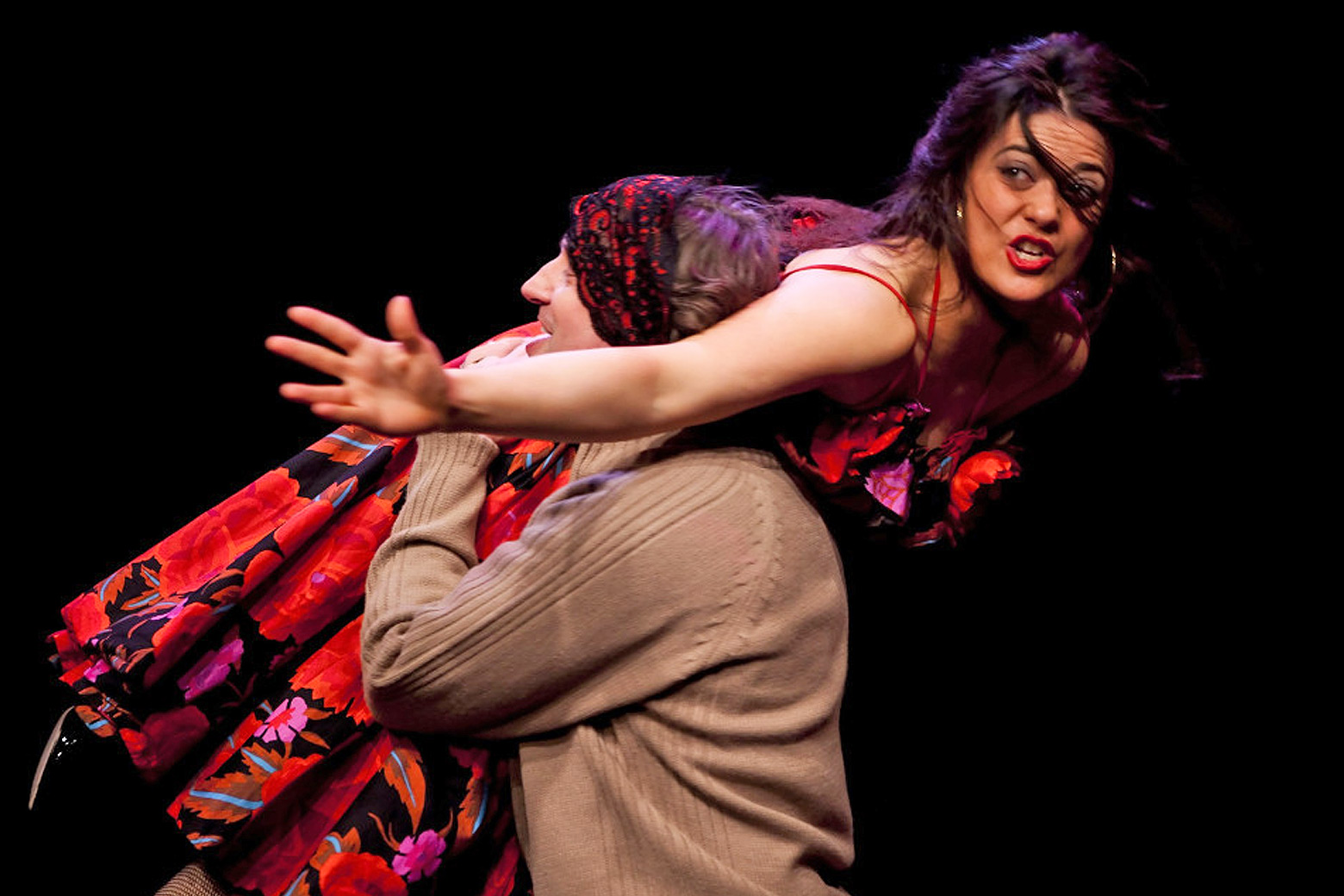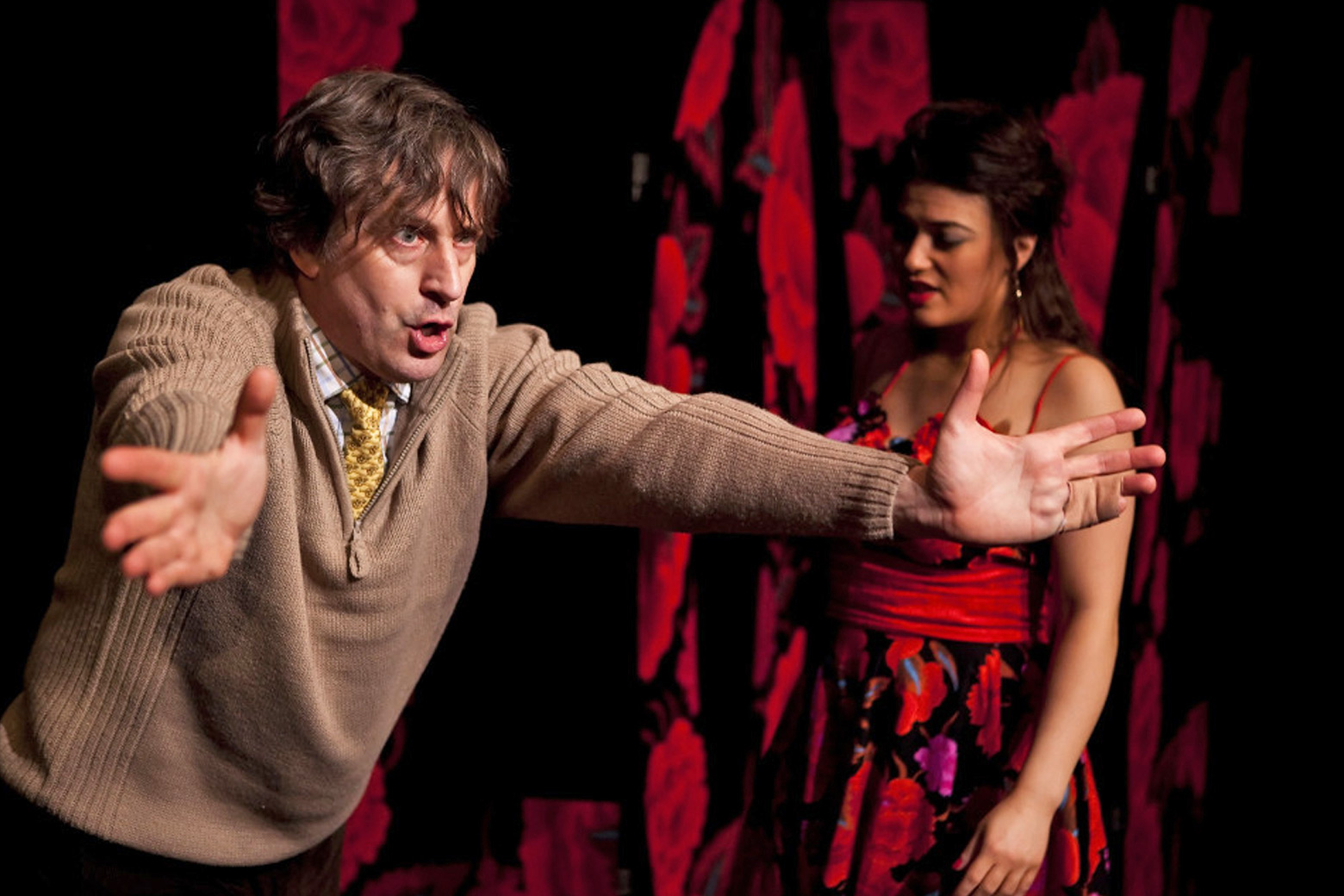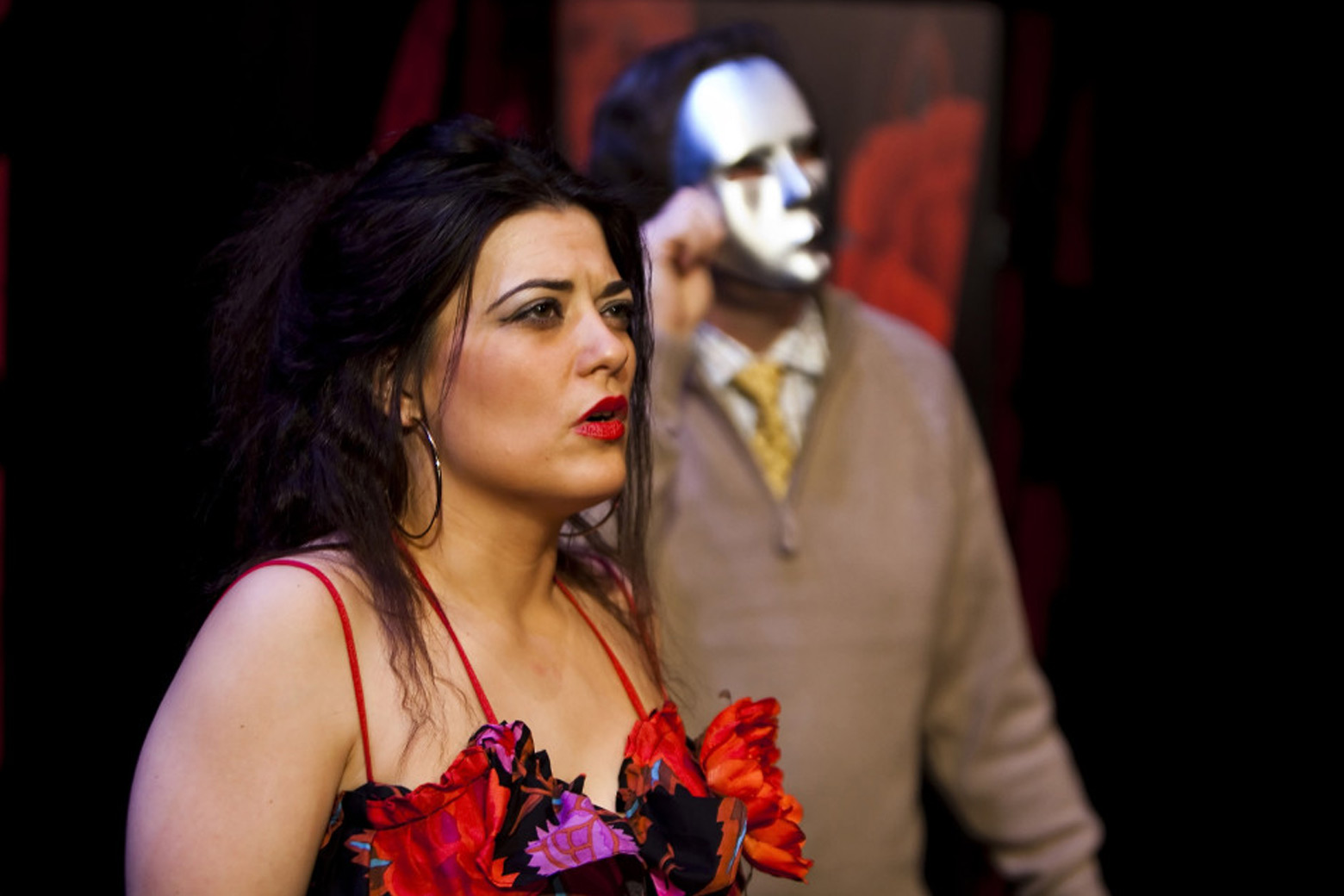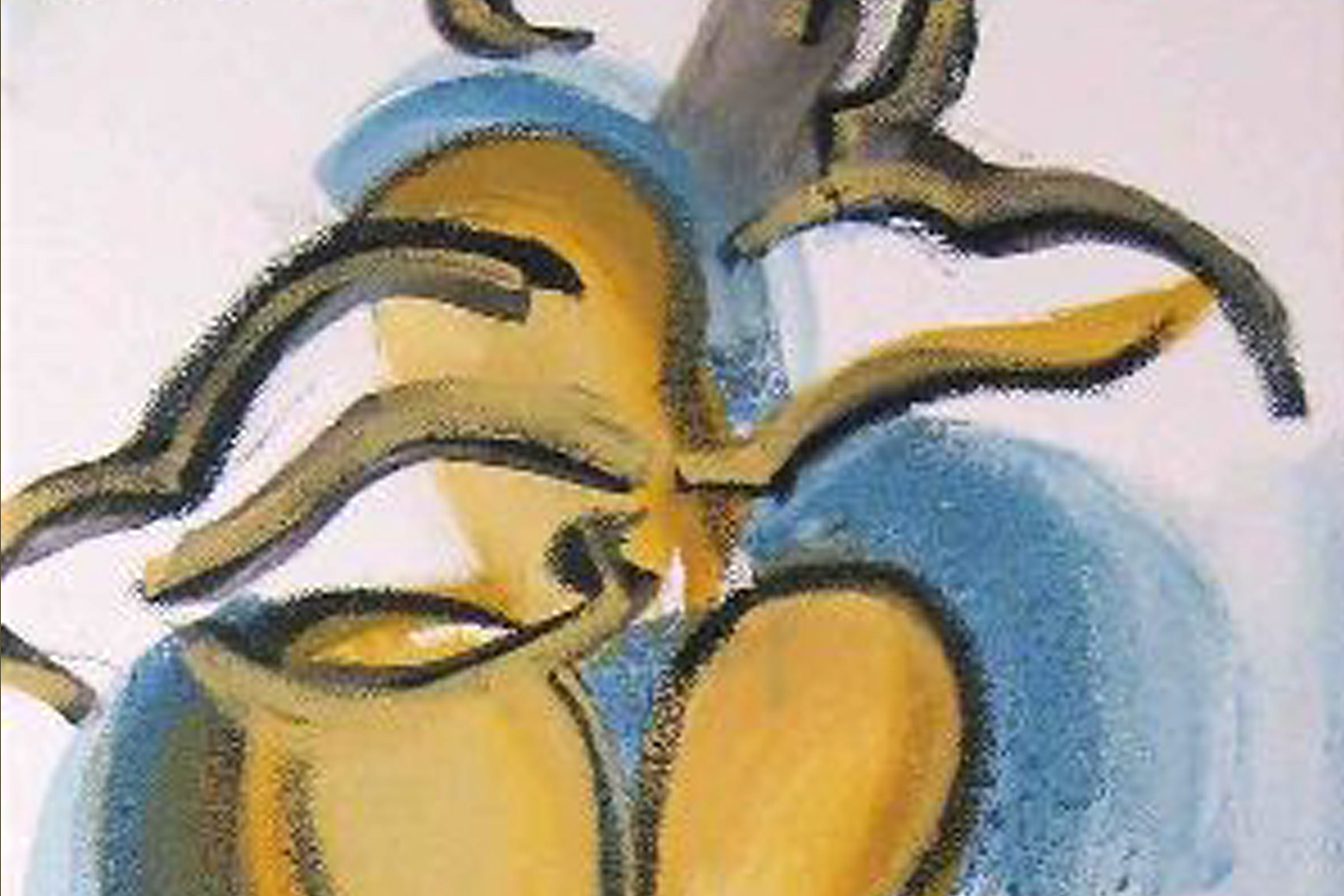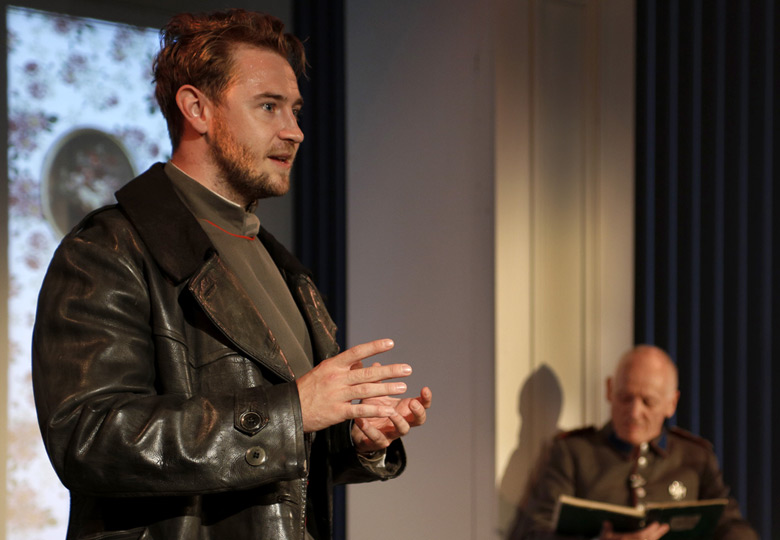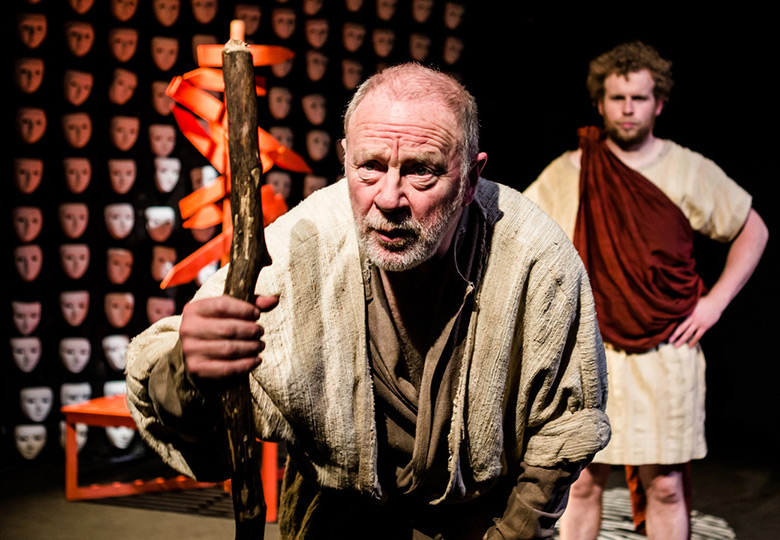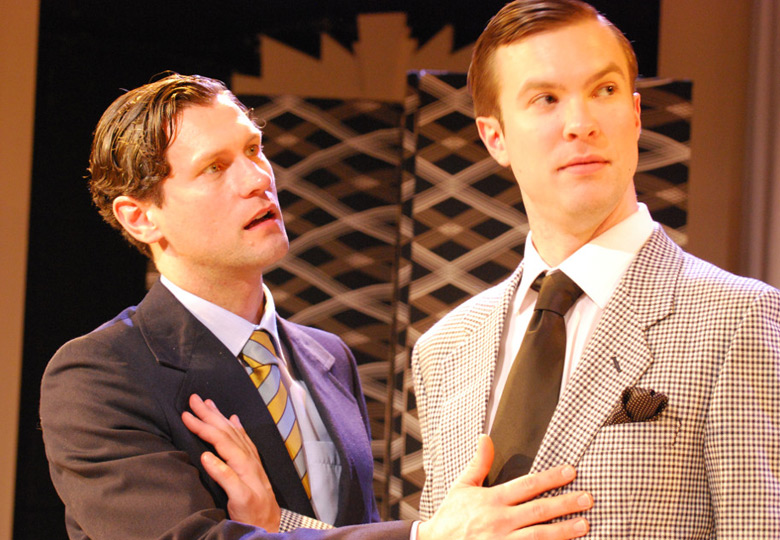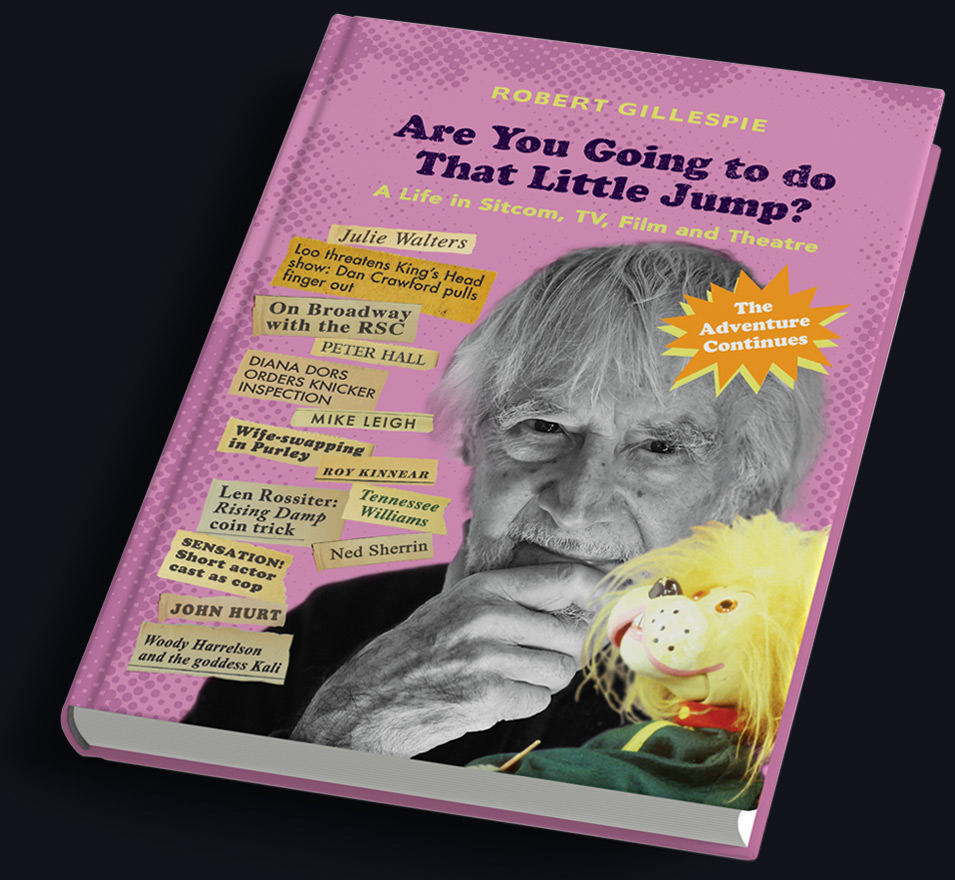Written and directed by Robert Gillespie
First performed at the New Diorama Theatre April 6th to 1st May 2010, produced by Lucy Jackson
Performed at The Old Sorting Office, Barnes October 20th to October 23rd 2010
Performed at The Courtyard 18-22 October 2011 & at The Tabard Theatre 8-23 November 2011
Cast
Michael: Stuart Sessions
Maria: Clare Cameron
“The only difference between prostitution and those who sell themselves into marriage, is in the price and length of the contract.” So said Simone de Beauvoir.
Michael Smith, retired widower, is looking forward to his daily crossword, the occasional trip to the library, pleasant meetings with old colleagues until there comes a day when he is shaken to his foundations by a happening – a vision – on a bus. Just a pair of legs, flashing as they descend the stair. He is driven to act, but at his time of life the only solution is risky, unconventional, even dangerous. Disturbed and anxious, he’s waiting for the outcome of an impulse. Perhaps sticking a pin in a list to find a partner is not such a crazy idea? Then there’s a knock at the door…
James Joyce, in a letter to his brother Stanislaus, wrote “I am nauseated by lying drivel about pure men and pure women and spiritual love for ever and ever.”

